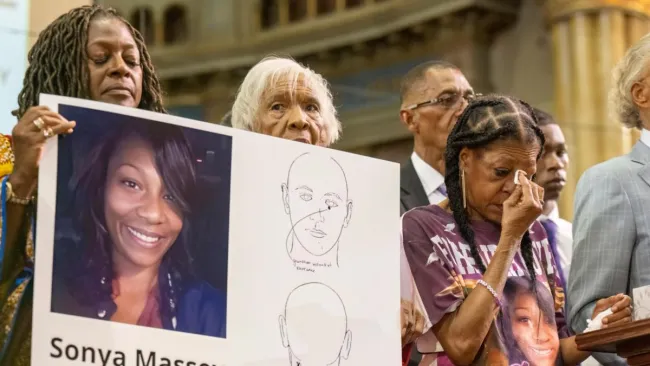Sean Grayson Case: Key Facts, Second-Degree Murder Sentencing, and Police Reform in Illinois
Former Sangamon County Deputy Sean Grayson was convicted of second-degree murder for the 2024 shooting of Sonya Massey in Springfield, Illinois. Learn key facts, sentencing laws, and reforms sparked by the case.
Former Sangamon County Sheriff’s Deputy Sean Grayson was found guilty on October 29, 2025, of second-degree murder, aggravated battery with a firearm, and official misconduct for the fatal shooting of 36-year-old Sonya Massey. The verdict, reached after a seven-day trial in Peoria County, came as the jury opted for a lesser charge than first-degree murder. Grayson’s sentencing is set for January 29, 2026, where he faces between 4 to 20 years in prison under Illinois law.
The conviction reignited national conversations about racial justice, police accountability, and law enforcement hiring practices, as Massey’s death followed a distress call that tragically turned deadly.
The Incident: A 911 Call That Turned Fatal
On July 6, 2024, Sonya Massey, a Black woman from Springfield, Illinois, called 911 to report a suspected prowler. Deputies Sean Grayson and Dawson Farley responded and entered her home. Bodycam footage later showed Massey holding a pot of boiling water while interacting with the officers.
When Massey said, “I rebuke you in the name of Jesus,” Grayson misinterpreted her words as a threat and fired three shots, one fatally striking her in the face. Despite Massey’s pleas and clear signs of distress, Grayson dismissed medical aid, saying, “She’s done.”
Deputy Farley, who did not fire his weapon, testified against Grayson, confirming that Massey posed no real threat at the time of the shooting.
Grayson’s Background: Red Flags Ignored
Grayson’s record revealed troubling patterns:
- Worked for six different police departments between 2020–2024.
- Discharged from the U.S. Army in 2016 for misconduct, including two DUIs.
- Accused of false arrest in 2021 and violating pursuit protocols in 2022.
- Despite his history, he was hired by the Sangamon County Sheriff’s Office, prompting scrutiny over lax vetting and accountability in police hiring.
Grayson’s defense highlighted his colon cancer diagnosis in 2023 and claimed he acted in self-defense, but the jury found his fear “unreasonable,” leading to the second-degree murder conviction.
Understanding Second-Degree Murder in Illinois
Under Illinois law (720 ILCS 5/9-2), second-degree murder applies when a person commits what would otherwise be first-degree murder but under mitigating circumstances—such as sudden provocation or an unreasonable belief in self-defense.
| Aspect | First-Degree Murder | Second-Degree Murder |
|---|---|---|
| Definition | Intentional killing without mitigation | Intentional killing with provocation or unreasonable self-defense |
| Sentence Range | 45 years to life | 4–20 years; probation possible |
| Probation Eligibility | Generally ineligible | Up to 4 years (rarely granted) |
| Extended Term | N/A | 15–30 years with aggravating factors |
Under 730 ILCS 5/5-4.5-30, Grayson faces a Class 1 felony sentence of 4–20 years. However, his aggravated battery conviction (Class X felony) could extend the total term, depending on whether sentences run consecutively.
Key Timeline of the Case
| Date | Event |
|---|---|
| July 6, 2024 | Sonya Massey calls 911; Grayson fatally shoots her. |
| July 17, 2024 | Grayson indicted for first-degree murder and misconduct. |
| July 22, 2024 | Bodycam footage released, sparking national outrage. |
| February 2025 | Massey’s family receives a $10 million civil settlement. |
| May 2025 | Illinois passes “Sonya Massey’s Bill” mandating stricter police background checks. |
| October 22, 2025 | Trial begins in Peoria County. |
| October 29, 2025 | Jury convicts Grayson of second-degree murder. |
| January 29, 2026 | Scheduled sentencing hearing. |
Reactions: Justice, Reform, and Outrage
Reactions to the verdict were mixed but impactful:
- Massey’s family, represented by attorneys Ben Crump and Antonio Romanucci, called the verdict “a measure of justice but not full accountability.”
- President Joe Biden emphasized that Americans should be able to “call for help without fear.”
- Vice President Kamala Harris and Governor J.B. Pritzker called for stronger police reform laws.
- Nationwide protests erupted, with organizations like the NAACP demanding systemic change.
The killing also prompted a U.S. Department of Justice investigation into the Sangamon County Sheriff’s Office, leading to commitments for improved de-escalation training, mental health crisis response, and transparency in officer discipline.
Legislative and Institutional Reforms
In direct response to the tragedy, Illinois lawmakers passed House Bill 1953, also known as Sonya Massey’s Bill, in May 2025. The legislation requires:
- Comprehensive background checks for all police hires.
- Mandatory psychological evaluations before employment.
- Public transparency in disciplinary records.
Sheriff Jack Campbell, criticized for hiring Grayson despite prior misconduct, retired in August 2024, following calls for his resignation.
The Broader Impact
The Sean Grayson case has become a national symbol of the urgent need for police accountability, racial equity, and mental health awareness in law enforcement. While the second-degree murder conviction provides some closure, it also exposes systemic flaws that allowed a troubled officer to remain on duty—until tragedy struck.
As sentencing approaches in early 2026, the case continues to serve as both a cautionary tale and a call to reform.
